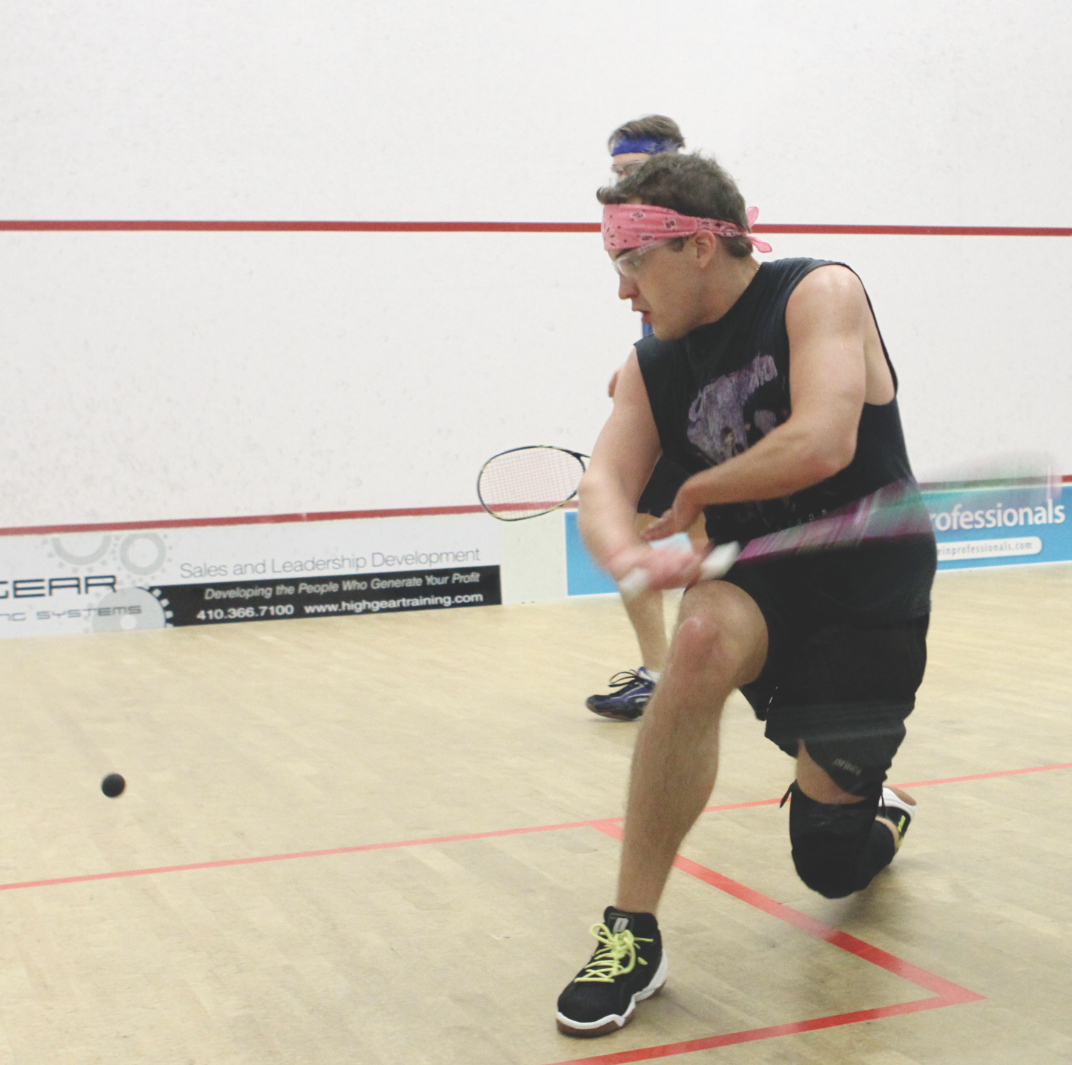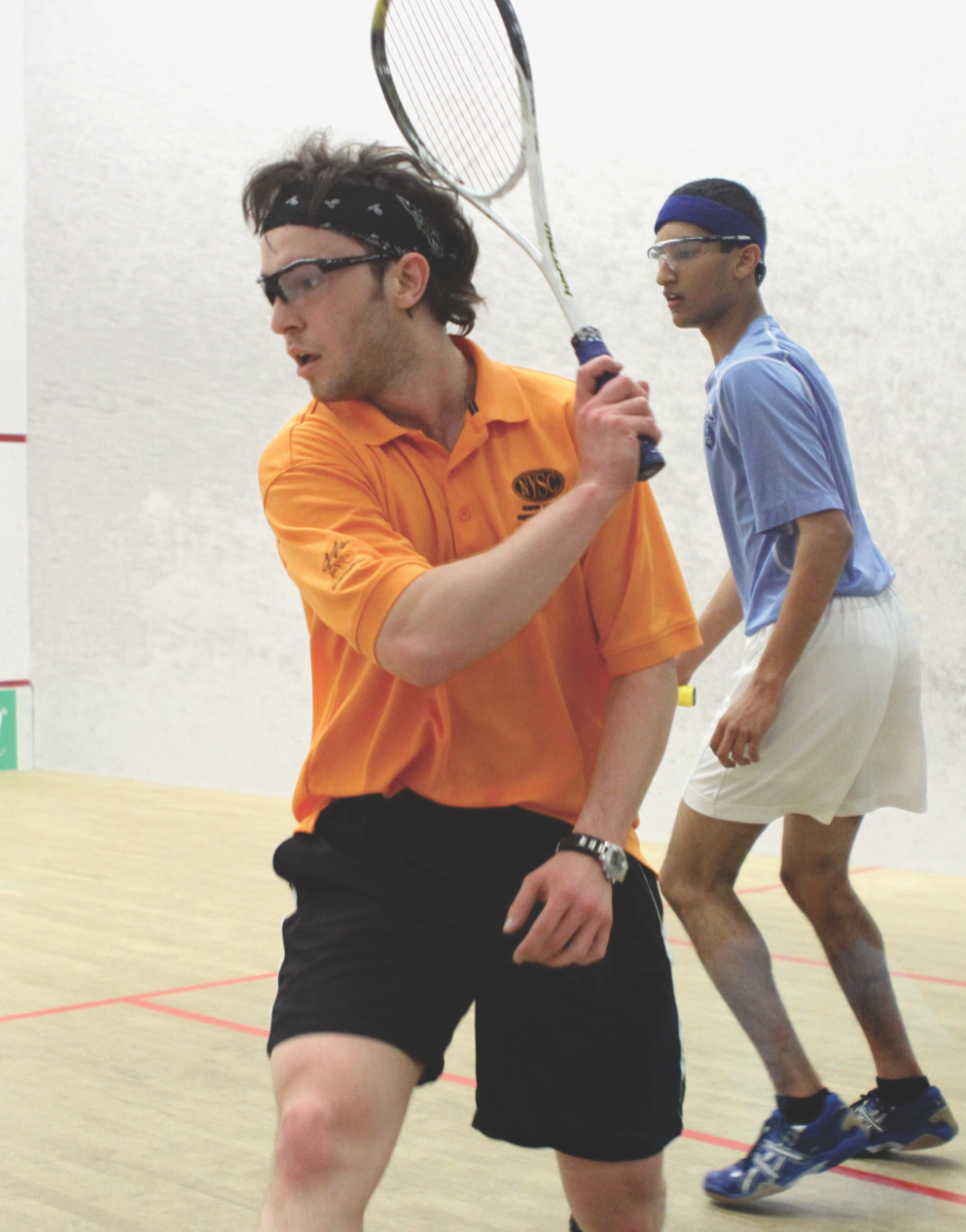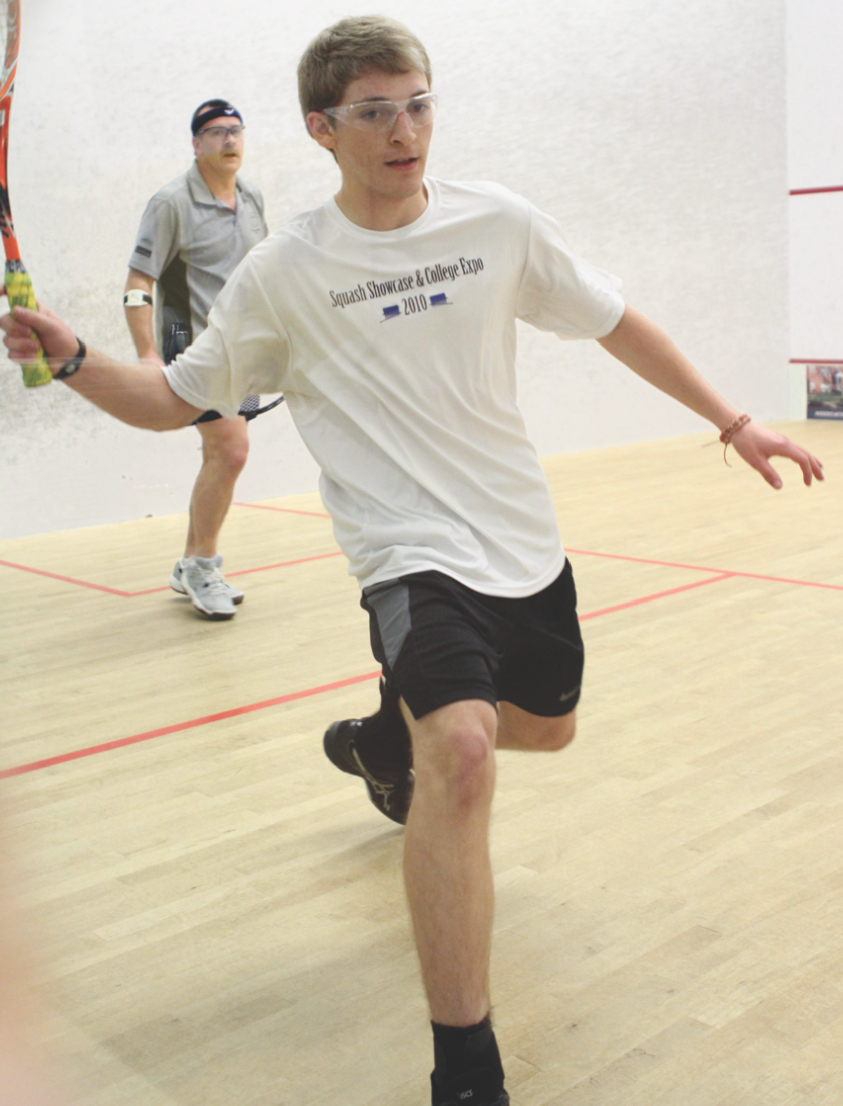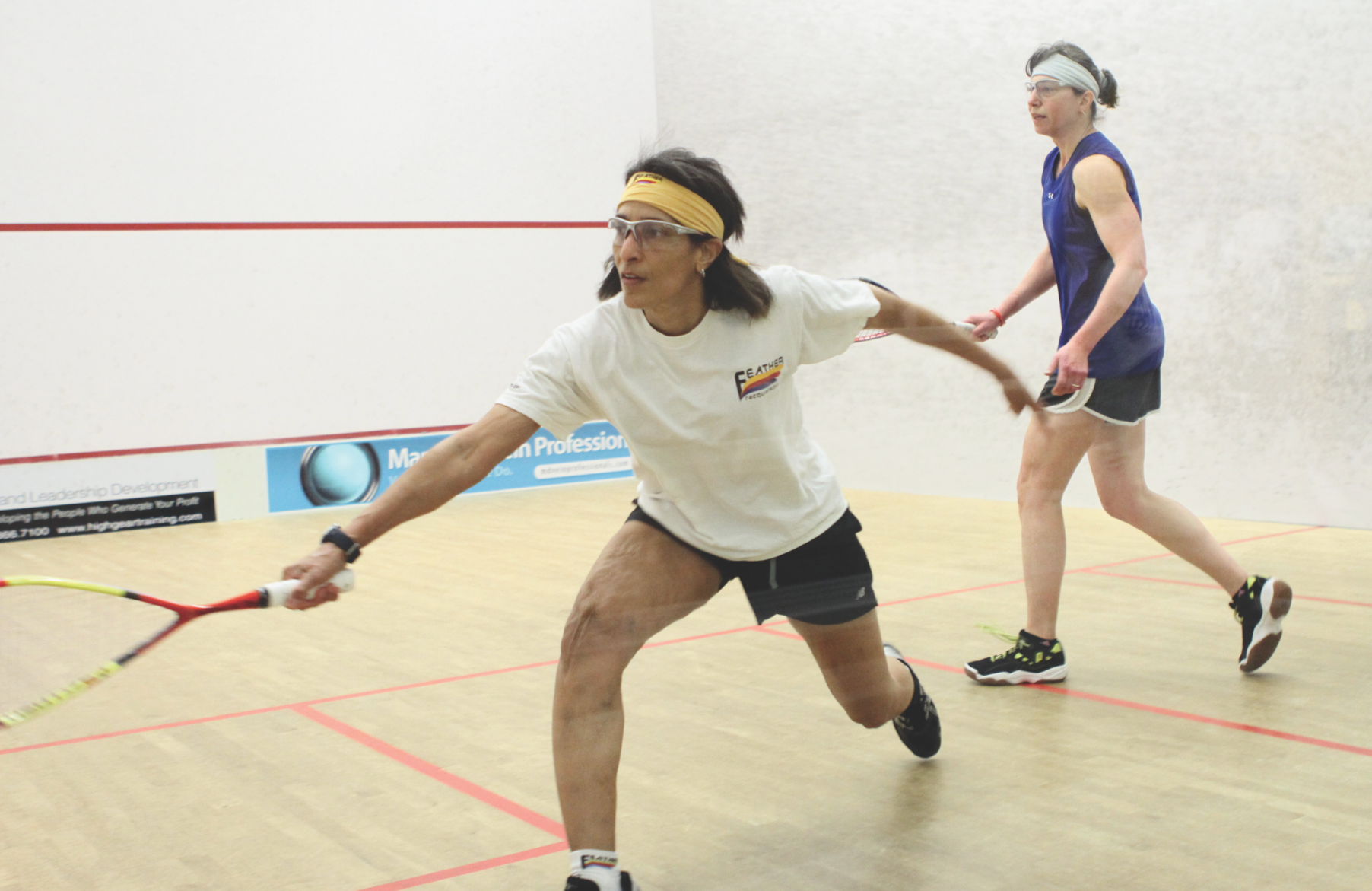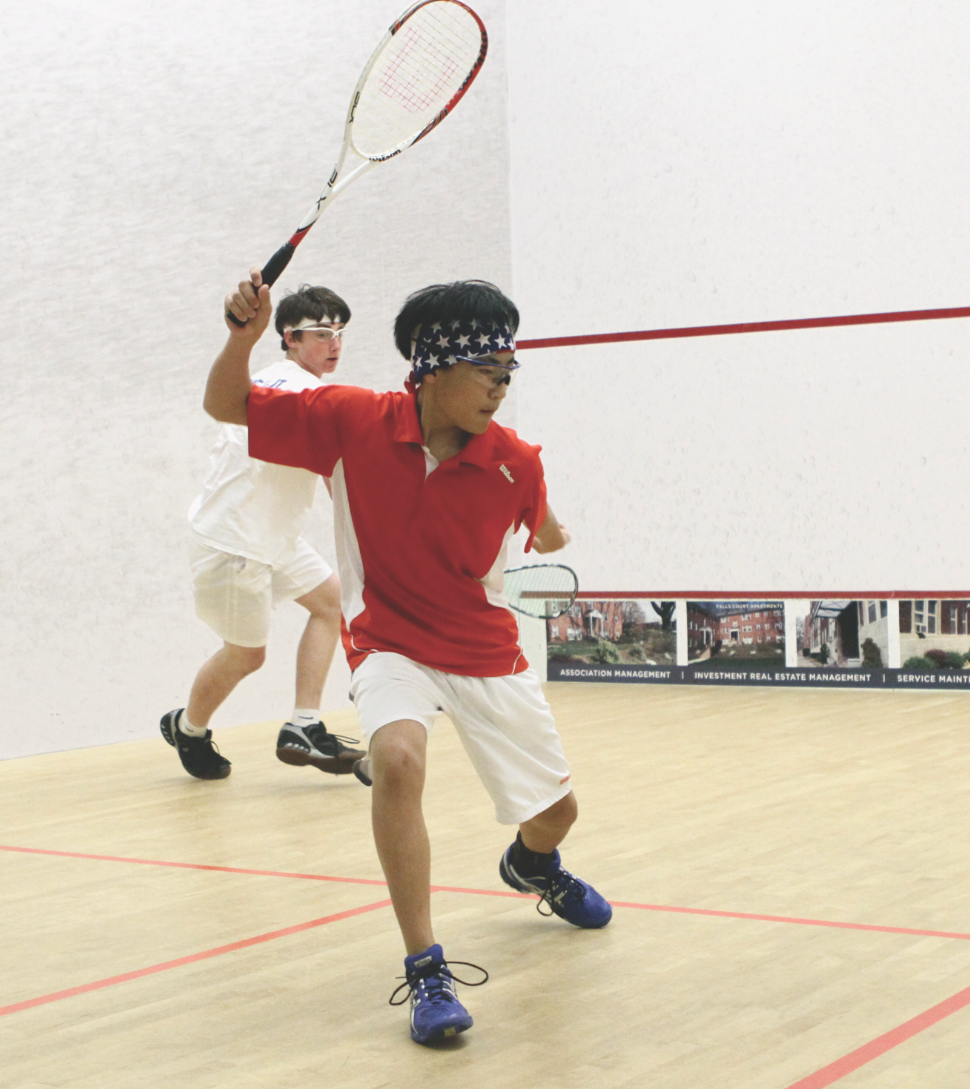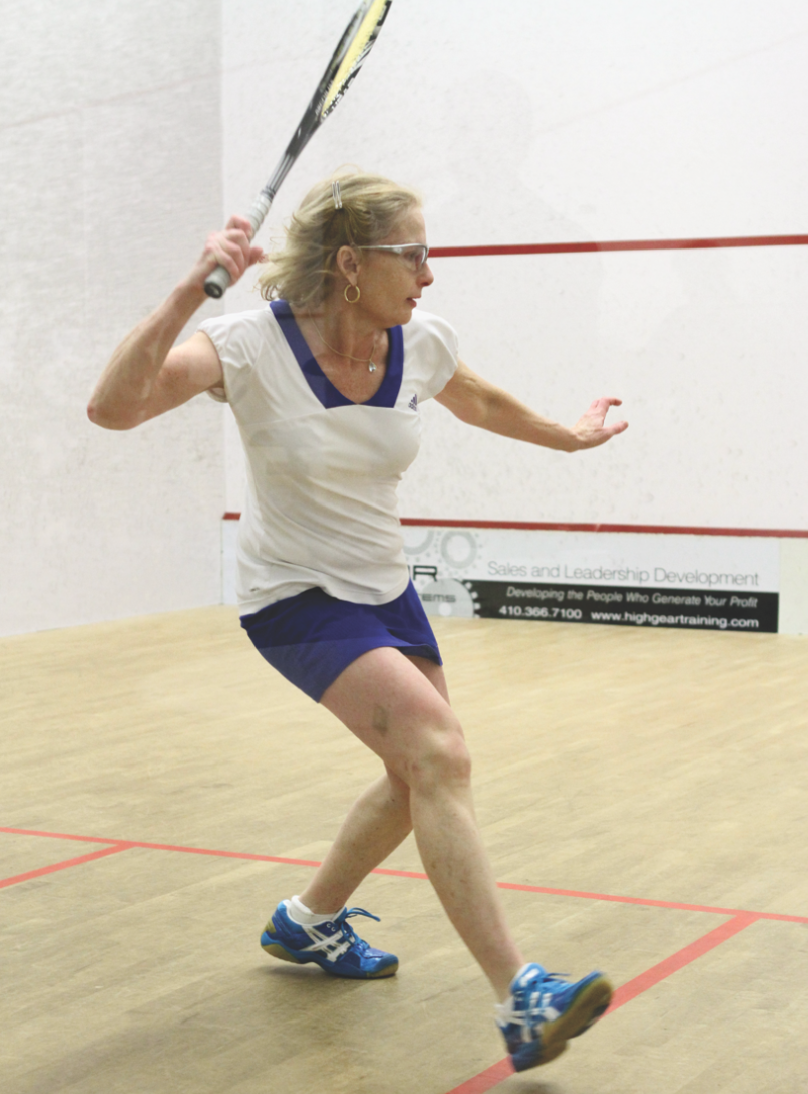
Article and photos by Jay D. Price
For some, the U.S. Squash Skill Level Championships have been an event in which youth has been the great equalizer, making the notion of “skill level” seem a bit of a misnomer. The point is, at times, hard to argue. For example, two years ago, Dominic Hughes, arguably one of the most skilled squash players in the country, entered the Skill Level Championships in the Men’s 6.0. But he was soundly defeated by Dent Wilkins (himself a highly skilled player) while having to concede upwards of 23 years of wear and tear on his body. So while there’s little doubt skill is important, the question is how much of an advantage do the youthful have?
The 2012 Men’s 6.0 Champion may not be the best person to ask. John Musto, who was playing the Under-19 Junior Championships the year Patrick Bedore was born, flipped the youth argument on its proverbial head. While most in attendance gave him little chance of prevailing over Bedore in the final, Musto simply played a tactically beautiful game while Bedore ran himself into the ground. Of course, Musto was helped by the fact that Bedore had played a grueling five-game semifinal to upend the top-seeded Ehimem Ehalen, but even Musto didn’t appear to exude supreme confidence when he walked onto the court.
Bedore appeared to run away with the first game of the final, 11-4, but he was visibly suffering. In one cruel stretch, Musto kept the ball in play just long enough to leave Bedore doubled over while using his own racquet to keep himself from collapsing. The net effect of Bedore’s effort would be a methodical win by Musto over the next three games—11-1, 11-7, 11-7.
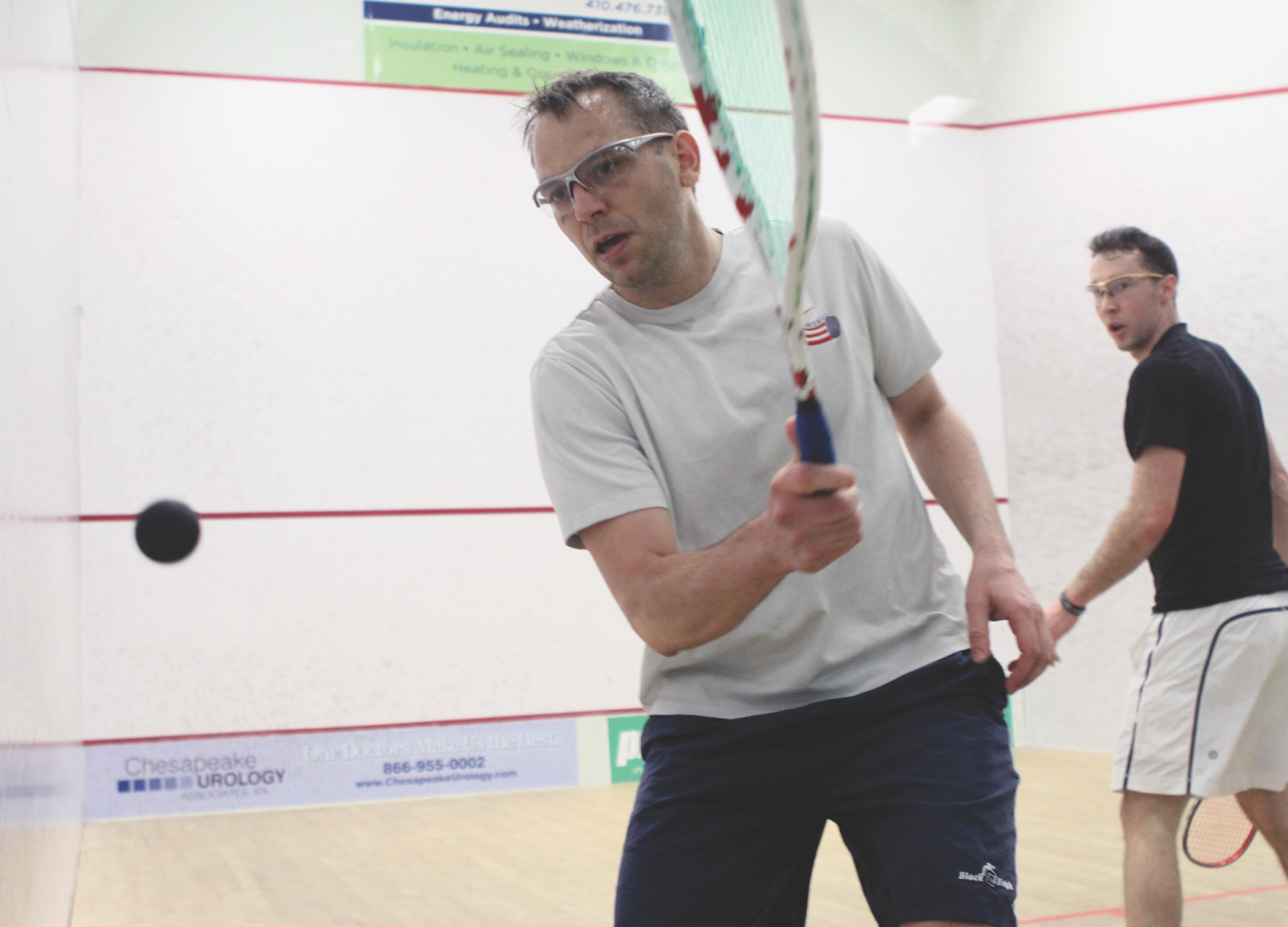
Age discrepancies also had little effect in several of the other finals. The Women’s 3.5 featured two players who faced each other in the 2011 3.0 final. In that championship match, Jessica Galitzin came in seeded No. 2 but left with winner’s hardware after upsetting the top-seeded Barbara Keil. This year, Keil turned the tables on Galitzin in the 3.5 final, despite spotting Galitzin over 20 years. Keil methodically rolled through her semifinal over Uzma Saleem in three games (in 2011 Keil needed five games to get past Saleem, also in the semis) and continued her dominance of the 3.5 division in three games against the top- seeded Galitzin.
In the only other Women’s division this year, Susan Lawrence surrendered six years in her 4.5 Division final while playing the No. 1 seed, Juilie Kessler. But it was Lawrence who found the length and width of the court to win in four games after dropping the opener.
Lawrence is a fabulous athlete who looks to cut the ball off whenever possible and pushing the pace of play as a result. While many women in the Skill Levels are content to play from the back court, Lawrence hunts the volley with precise touch—usually something reserved for the younger players.
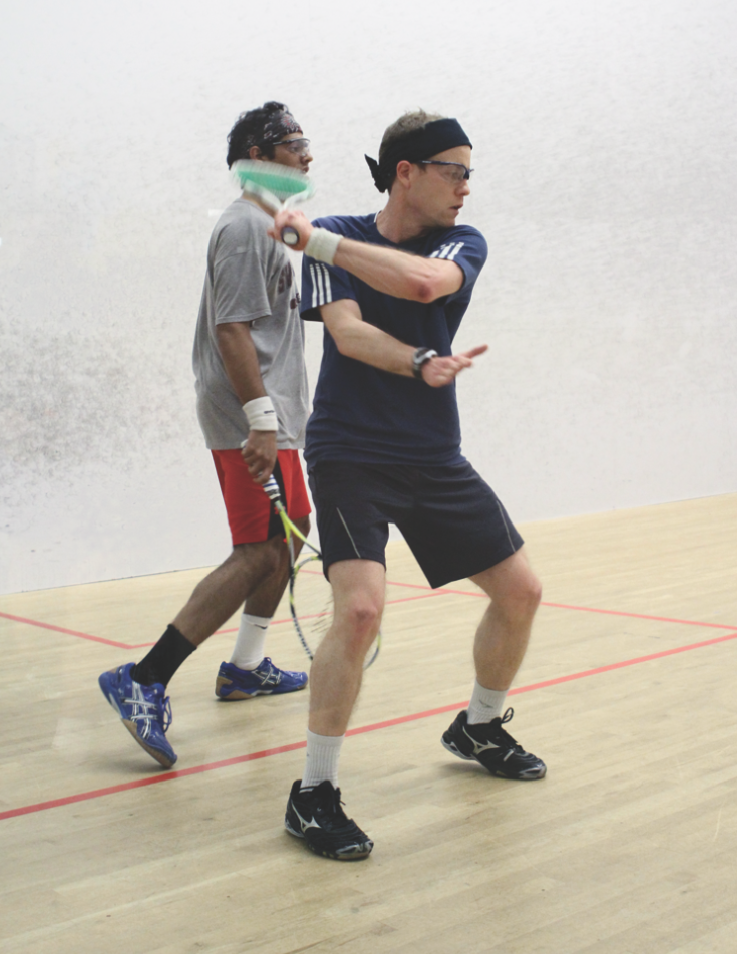
At the Men’s 5.5 level, most of the players possess solid skills and the benefit of young legs ready to scamper around the court at will. But this year’s draw featured two players well into their 40’s (Will Carlin and Adam Walker) and one looking to make a splash in the World Masters this summer in the 50+ (Richard Millman).
Millman, a master at using the height of the court as well as deception that boggles the mind, was suffering from a knee ailment that limited his mobility, however. In the quarterfinals, Danial Saleem upset Millman in four punishing games. Saleem, who just finished his second year at Columbia University, summoned just enough foot-speed and reflexes to recover when Millman had him leaning the wrong direction. And he was able to inject just enough pace into the rallies to keep Millman off-balance. Those same tools served Saleem well until he faced Edwin Goncharuk in the final.
Goncharuk, just a year removed from his days at the University of Rochester, corralled Saleem’s quickness with excellent use of length and volleys to take the title in three games, 11-9, 11-9, 11-5.
The last of the divisions in which age became irrelevant was the Men’s 5.0. John Sayward, who for the last six years has been taking his shot in the 5.0 Divi- sion, finally captured the title by shutting down Tarit Rao-Chakravorti in a three-game final. In 2011, Sayward got as far as the semis before finishing in third place.
So fear not, aging squash players, the Skill Level Championships have not proven to be for just the young of body. In this sport, being young of mind and wielding supreme skills can still help you to reign supreme.
